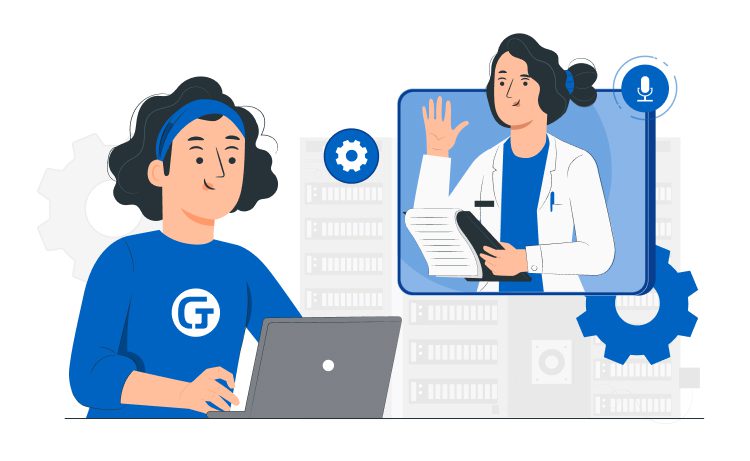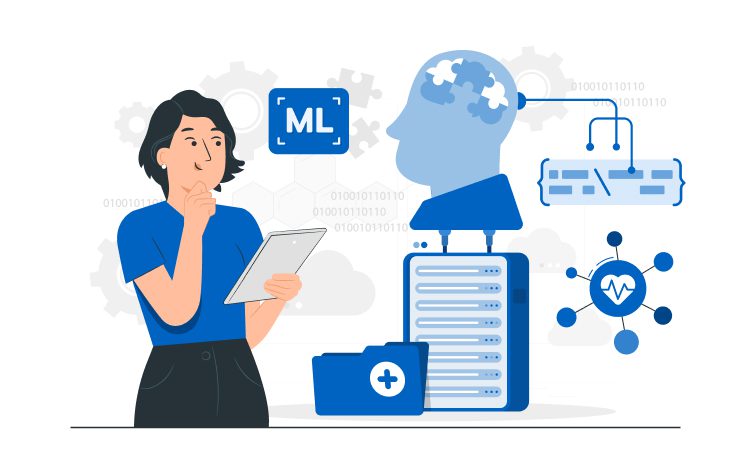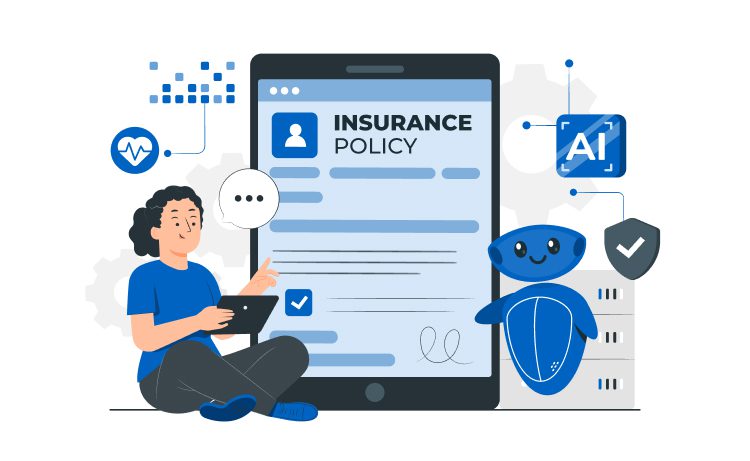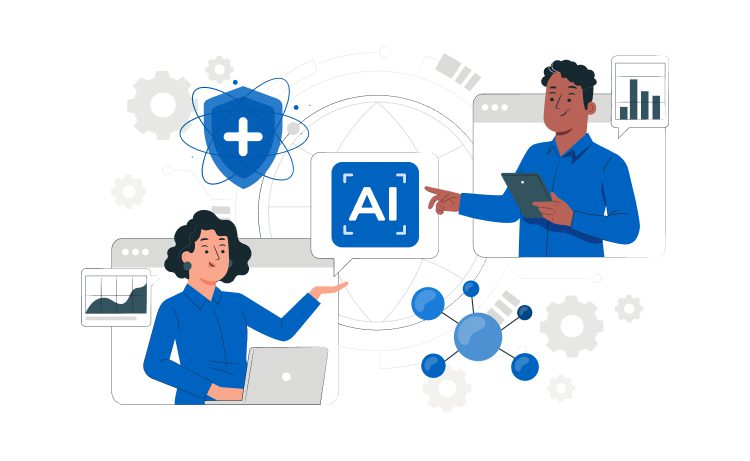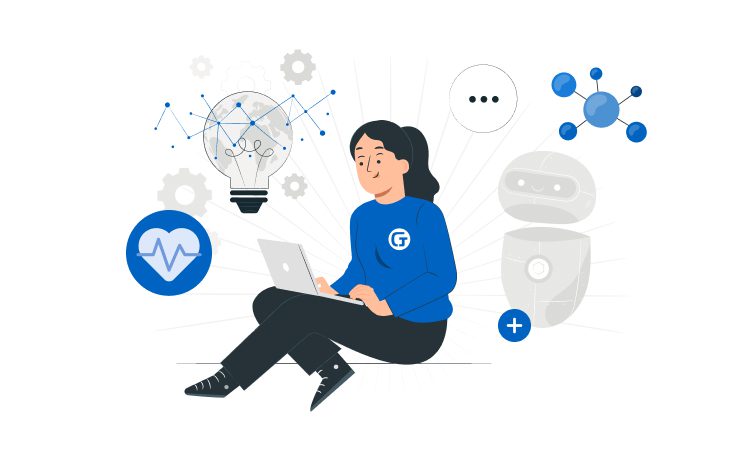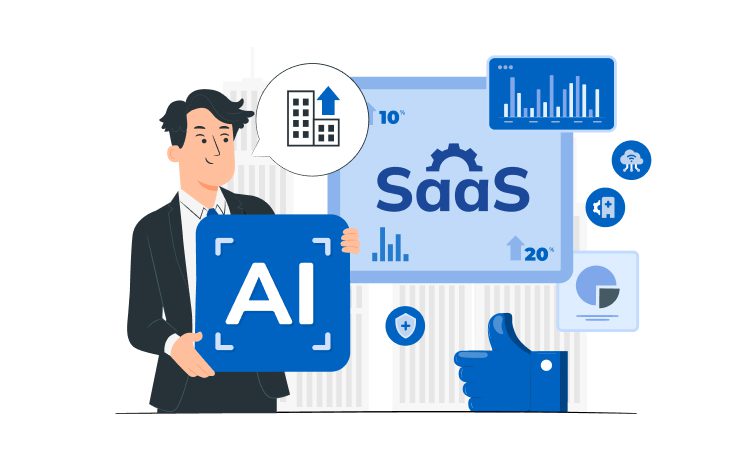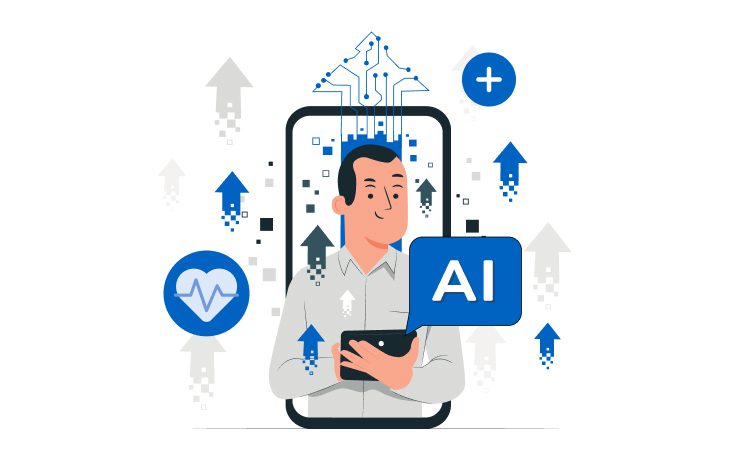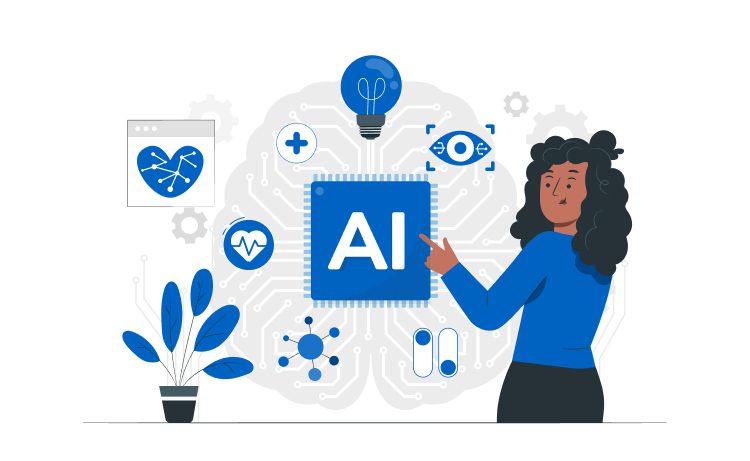
10 Benefits of AI in Healthcare: Use Cases



Are you wondering about the advantages and disadvantages of artificial intelligence in healthcare for your business? Is it widespread among leading companies? When should you consider adopting this technology? In this article, we will describe ten advantages of implementing AI in the healthcare industry and show use cases of startups who have already transformed their healthcare businesses.
Content
The AI market in healthcare was valued at approximately 22.45 billion USD in 2023. It is predicted to grow at a rate of 36.4% annually from 2024 to 2030. The increasing digital health data drive this growth and demand for personalized medicine, and the need to cut healthcare costs.
Additionally, an aging global population, lifestyle changes, and more chronic diseases have led to a higher demand for early disease diagnosis and better disease understanding. AI and ML increasingly integrate into healthcare systems, offering more accurate early-stage disease predictions using historical health data. Read more useful statistics here.

According to a McKinsey study, AI and machine learning technologies have increased revenues for 63% of companies. Additionally, 65% of employees noticed improved experiences due to AI implementation. The study also found that AI technologies enhanced customer experiences for 67% of businesses.
Upon assessing the return on investment, 42% of companies reported an excellent impact from AI. Furthermore, 41% of respondents believe that AI contributes to better decision-making in operational processes. AI technologies have also boosted productivity for 38% of respondents. Moreover, 35% of participants noted improvements in automating business processes due to AI, and 34% reported increases in revenue and profits.
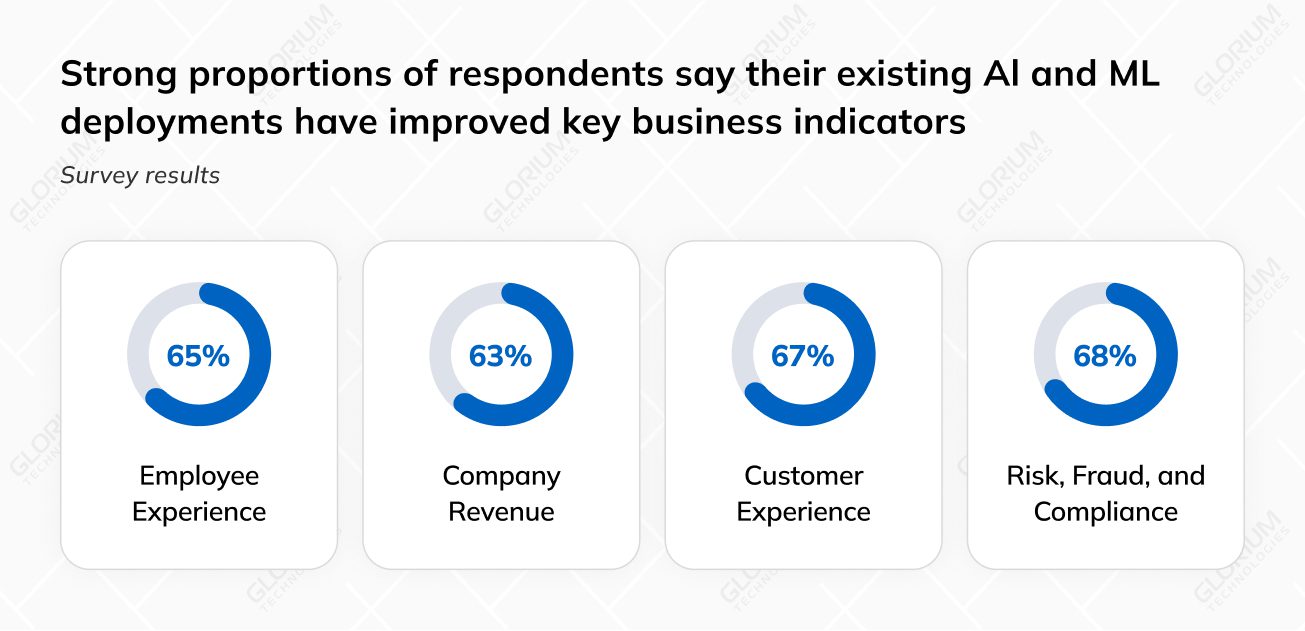
AI’s advanced algorithms significantly increase the accuracy of medical diagnoses, offering more reliable treatment options. For example, startup Enlitic employs deep learning to analyze complex medical data expertly, significantly improving diagnostic accuracy in various conditions.

AI analyzes individual patient data to provide customized treatment plans, enhancing effectiveness. Tempus showcases expertise in AI for cancer therapy personalization, analyzing clinical and molecular data to create targeted treatments.
AI’s predictive capabilities expedite drug development, showcasing efficiency and cost-effectiveness. Atomwise demonstrates expertise in using AI for innovative drug discovery, predicting molecular interactions to streamline new drug development.
AI’s predictive models enable early healthcare intervention, effectively reducing healthcare costs. ClosedLoop.ai utilizes AI in predictive healthcare management, expertly identifying health risks to prevent hospital readmissions.
AI’s automation capabilities reduce time and human error in administrative tasks within healthcare. Cogito Health utilizes AI to optimize patient scheduling and communication. By employing sophisticated algorithms, Cogito Health analyzes patient data and clinician availability to efficiently manage appointment bookings and reminders, thereby reducing wait times and improving patient throughput, while also minimizing the administrative workload on healthcare staff.
AI facilitates continuous and accurate remote patient monitoring, improving chronic disease management. Biofourmis uses AI for expert remote health monitoring, providing precise real-time health analytics for chronic conditions.
AI significantly improves the accuracy of medical image analysis, aiding early disease detection. Zebra Medical Vision excels in applying AI for medical imaging, enhancing the diagnostic process for various diseases.
AI-powered tools effectively increase patient engagement and ease of access to healthcare services. Babylon Health expertly engages patients in AI-driven chatbots, providing accessible health assessments and primary care.
AI provides immersive, realistic training experiences for medical professionals, enriching their skill sets. Osso VR leverages AI in virtual reality for advanced surgical training, showcasing its expertise in educational technology.
AI’s operational streamlining capabilities lead to significant cost savings and increased efficiency in healthcare. PathAI employs AI to enhance pathology diagnostics, achieving higher accuracy and reducing laboratory costs.
Glorium Technologies, with 13 years of expertise in healthcare, demonstrated its prowess by developing advanced technology for healthcare company, a pioneer in 3D printed medical models. They tackled the challenge of efficiently converting 2D medical images into 3D models, essential for surgical training. What have we done? Software that streamlines this complex process to a mere 30 minutes provides BIOMODEX a significant competitive advantage in the digital health market.
Glorium’s integration of adaptable quality assurance frameworks ensured the software’s relevance to changing medical needs.Our system includes a Workshops Processing feature, offering customized solutions. For a more detailed analysis of 3D models, we have integrated a DICOM Viewer specifically for STL files. This is complemented by our advanced feature of mapping 3D masks over organ images, significantly enhancing the precision of model creation.
Glorium Technologies development led to BIOMODEX’s successful commercialization, establishing new medical training and preparation standards and underscoring Glorium’s capability to address complex healthcare technological challenges.
While the benefits of AI in healthcare are substantial, the implementation of AI also presents significant challenges. One of the primary challenges is the integration of AI into existing healthcare systems, which often requires substantial changes to current workflows and processes.
Learn more about AI consulting.
Additionally, you must consider data privacy and security, as healthcare data is sensitive and subject to strict regulatory compliance. Another challenge is the accuracy and bias in AI algorithms; these systems must be trained on diverse datasets to avoid biased outcomes.
Moreover, the cost of implementing AI solutions can be high, and there is a need for continuous maintenance and updates to keep up with the rapidly evolving AI technology. The complexity of medical data also poses a challenge, requiring highly specialized AI algorithms capable of accurately interpreting and analyzing complex health information.
Given these challenges, choosing a reliable AI custom software development company that understands the intricacies of healthcare data and compliance requirements is essential. A company with a proven track record in healthcare AI can navigate these challenges effectively and deliver secure, compliant solutions.
With our 13 years expertise in healthcare solutions, they are adept at overcoming these challenges, ensuring a smooth integration of AI into healthcare systems. Contact our managers to transform your healthcare software development.

